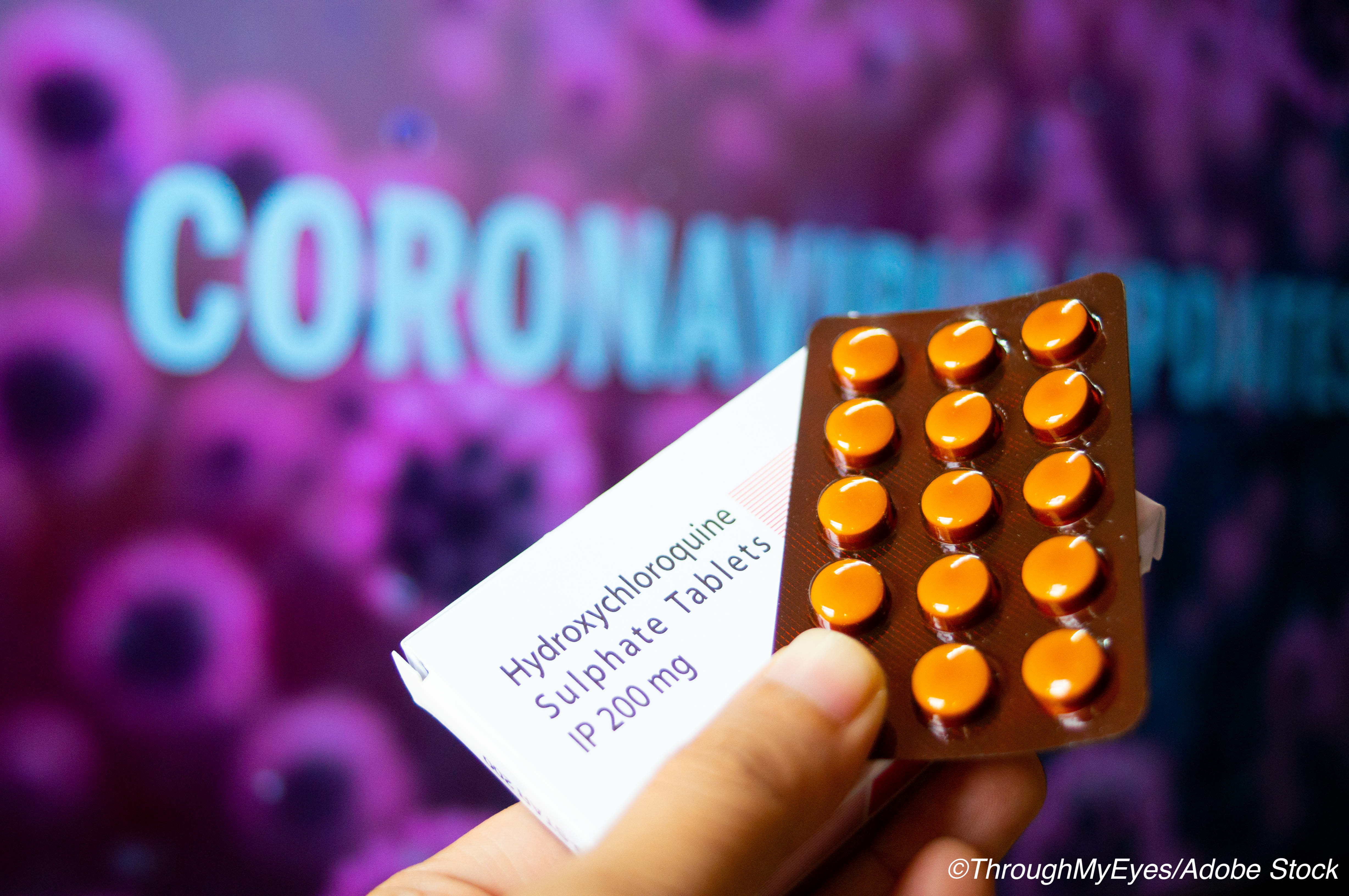 Yet another study fails to find a place for hydroxychloroquine in the treatment of Covid-19, this time as postexposure prophylaxis or preemptive therapy.
Yet another study fails to find a place for hydroxychloroquine in the treatment of Covid-19, this time as postexposure prophylaxis or preemptive therapy.
In a cluster-randomized trial, patients assigned to receive hydroxychloroquine were not protected against SARS-CoV-2 infection or symptomatic Covid-19 any better than those assigned usual care after exposure to individuals with PCR-confirmed, symptomatic Covid-19. The study was published in the New England Journal of Medicine.
“The overall attack rate for PCR-confirmed, symptomatic Covid-19 was 6.0%, excluding contacts who were not enrolled because they had symptoms before the baseline assessment,” Oriol Mitjà, PhD, of Hospital Germans Trias i Pujol, Badalona, Spain, and colleagues wrote. “Contacts who received hydroxychloroquine and those who received usual care had a similar incidence of symptomatic Covid-19 (5.7% and 6.2%, respectively).”
Moreover, they found that hydroxychloroquine was not effective in preventing Covid-19 for individuals who did not test positive for the SARS-CoV-2 virus as baseline and showed no efficacy for individuals who were PCR-positive at baseline.
The open-label trial, conducted in Catalonia, Spain, looked at 2,314 individuals who had been in contact with 672 patients who had Covid-19. They were randomized to receive either an initial 800 mg dose of hydroxychloroquine followed by 400 mg daily for 6 days or to usual care. In the latter group, the patients did not receive any specific therapy.
“The primary outcome was PCR-confirmed, symptomatic Covid-19 within 14 days,” Mitjà and colleagues wrote. “The secondary outcome was SARS-CoV-2 infection, defined by symptoms compatible with Covid-19 or a positive PCR test regardless of symptoms. Adverse events were assessed for up to 28 days.”
Of note, along with not providing any therapeutic value against Covid-19, the patients in the hydroxychloroquine arm of the study had a higher incidence of adverse events — 56.1% versus 5.9%.
“The most frequent treatment-related adverse events among contacts given hydroxychloroquine were gastrointestinal (diarrhea, nausea, and abdominal pain) and nervous system disorders (drowsiness and headache),” the study authors wrote. “A total of 31 serious adverse events were reported, 14 in the hydroxychloroquine group and 17 in the usual-care group; none of these events were thought to be related to hydroxychloroquine or usual care by the independent pharmacovigilance consultants. Six adverse events of special interest were observed, including five episodes of self-limited heart palpitations potentially related to hydroxychloroquine.”
“Despite the promising in vitro results that placed hydroxychloroquine among the leading candidates for Covid-19 treatment and prophylaxis, there are no compelling data to suggest that hydroxychloroquine is effective,” Mitjà and colleagues concluded.
The trial was supported by YoMeCorono, a crowd-funded campaign, as well as others. The rush to find therapies for the treatment and prevention of Covid-19 has spurred a flurry of crowd-funded campaigns against the virus, with more than 300,000 campaigns launched in 2020.
Candace Hoffmann, Managing Editor, BreakingMED™
Cat ID: 151
Topic ID: 88,151,254,930,791,932,192,927,151,928,925,934

